Search Results
Showing results 181 to 200 of 209

Peripheral Vision
Source Institutions
How far can you see out of the corner of your eye? Grab a partner and find out from the Exploratorium Science Snack.

Crunch Time
Source Institutions
In this quick and easy activity and/or demonstration, learners use two empty 2-liter bottles and hot tap water to illustrate the effect of heat on pressure.

Far-Out Corners
Source Institutions
Are there boxes, is this an illusion, or is this real life Q-bert? Illusions are always fun to build especially when you can build them.
The Bent Pencil
Source Institutions
In this optics activity, learners explore how light bends and affects what we see.
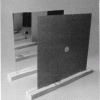
Look Into Infinity
Source Institutions
Learners use two mirrors to explore how images of images of images can repeat forever.
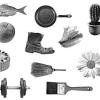
Memory Solitaire
Source Institutions
In this online game, learners practice memory recall. They are shown a collage of pictures for two minutes, then have to write down everything they remember and check how they did.
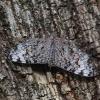
Butterflies and Moths: Camouflage
Source Institutions
In this activity, learners make a camouflaged butterfly to hide outside for others to find.

How can Clouds Help Keep the Air Warmer?
Source Institutions
In this activity, learners explore how air warms when it condenses water vapor or makes clouds.
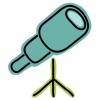
Make a Telescope
Source Institutions
In this optics activity, learners make a simple telescope using two lenses and a cardboard tube. Learners construct the telescope and then calculate its magnification.
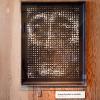
Jacques Cousteau in Seashells
Source Institutions
Up close, an array of dots could look random, but take a step back, and an image forms. By tracing over an image, learners can create their own dot based image.
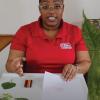
Leaf Rubbings
Source Institutions
When was the last time you took a really close look at a leaf? In this activity, learners will use leaves and simple materials to make colorful leaf rubbings.
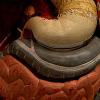
As The Stomach Churns
Source Institutions
In this chemistry activity, learners fill two test tubes with a solution of "artificial stomach fluid," consisting of hydrochloric acid in the same concentration as in human stomachs, some soap to cre
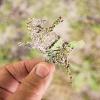
Disappearing Act
Source Institutions
Make a camouflage cut-out animal! Using patterned paper or magazine pictures from around the house, use your craft skills to make a paper animal that blends into its background.
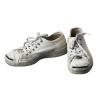
Homologous Shoes?
Source Institutions
This "concept demonstration" provides learners with a concrete example (a pair of shoes in a classroom "cell") of what homology means.
Catch the Beat
Source Institutions
This is an activity about music, movement, and math. Learners will start a rhythm pattern with 2, 3, or 4 beats. For instance, tap your foot, jump, clap, repeat.
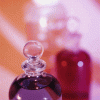
How Sweet It Is
Source Institutions
In this activity (4th activity on the page), learners use their sense of smell to rate and arrange containers filled with different dilutions of a scent (like cologne or fruit juice) in order from wea
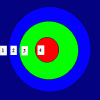
Drop IT!: Depth Perception
Source Institutions
These two activities (4th on the page) demonstrate the importance of two eyes in judging depth.
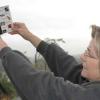
Ready to Observe: Enhance Your Telescope Experience
Source Institutions
This fun hands-on astronomy activity uses a variety of simple props to help learners understand why they see what they see in a telescope.
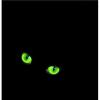
Seeing in the Dark
Source Institutions
In this activity (17th on the page), learners investigate why you cannot see colors in dim light.
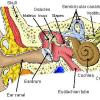
Model Eardrum
Source Institutions
In this activity (last activity on the page), learners make a model of the eardrum (also called the "tympanic membrane") and see how sound travels through the air.
